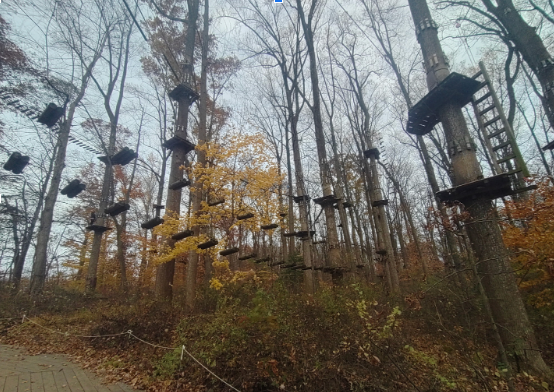Class of 2028 First to Go Through New Admissions Process
- Ronan Shah
- Mar 3, 2025
- 3 min read
This past year, School Without Walls introduced a revamped admissions process, which included interviews, an in-person writing sample, and teacher recommendation letters. Incoming freshmen have expressed a wide range of opinions on the new process and its effectiveness.
While many students agreed that the new process improved upon the old one, they also felt it still had room for improvement. Several freshmen mentioned confusion during the process, with frustration stemming from disorganization and late notices, particularly regarding interview times.
Quynh Matsudaira (‘28) noted the lack of clear communication, saying, “I wasn’t really sure what I was doing until the day I came in.” Venya Gulati (‘28) echoed this sentiment: “They sent out emails that were like two days before the interview… and I had to miss a debate tournament for that.”
One of the significant changes to the application process was the inclusion of teacher recommendation letters, submitted at the start along with transcripts. Feedback on this addition was overwhelmingly positive. Emma Pfaffenroth (‘28) described the recommendation letters as “probably the most important part of the application process” because they reflect “the true thoughts and feelings of the teachers that came before.”
Interviews, a longstanding element of SWW admissions, also received feedback from students. Many suggested improvements, particularly regarding the length and consistency of the questions. Genevieve Pezalla-Werth (‘28) summarized the general sentiment: “The interviews were far too short, and I feel like they couldn’t learn anything about you in the five minutes they were given.” Students also noted that the interview questions varied significantly between individuals, making it difficult to compare candidates.
Additionally, many students questioned the necessity of parent interviews, arguing that they were unhelpful and should be reduced or eliminated. Some felt that parents might exaggerate their child’s achievements. Genevieve Pezalla-Werth (‘28) explained, “It’s supposed to be about us and more about our independence and abilities as students.” Chiara Cerletti Giraudy (‘28) added, “Parents definitely do play up.”
However, Emma Pfaffenroth (‘28) disagreed. She believed that parent interviews offered a broader perspective on students, saying, “Sometimes kids humble themselves… in the interview questions with the kids, they weren’t asked about their sports or extracurriculars, and then for the parents, they were asked more in-depth questions about their lives.”
Another new element of the application process was the introduction of an in-person writing sample, replacing the previously submitted essay. The writing sample featured limited space and opinion-based prompts, which elicited mixed reactions from students.
Some students felt the writing sample effectively tested certain skills but found it somewhat confusing. Many believed the prompts were too random, focusing more on critical thinking than writing abilities. Additionally, students pointed out that calling the assignment an “essay” in the admissions emails was misleading, as the writing space was restricted to about a paragraph. “I thought I was going to have to write five paragraphs,” said Venya Gulati (‘28).
Despite the challenges, some students appreciated the constraint on writing length. Ida Laitan (‘28) said, “Limiting your space was definitely a key factor… [because it made you] really have to think and process and analyze what you’re thinking in a more concise manner.”
Reviews of this year’s admissions process from teachers was largely positive, mostly due to the one factor that has stayed the same, as it's still early for teachers to gauge the impact of the new essay component of the process. Spanish teacher Ana Martinez Lopez, who interviewed students this past year said that “I believe the interview is the best way to understand if a student fits well here.” Corey Matthews, health and PE teacher and another interviewer, agreed, adding that “They do give good information and insight into the students with their interests are…it's a good process.” Admissions director Noretia Hardge declined Rookery requests for comment on the efficacy of the components of the revamped process.
Regardless of student and faculty opinions, the new application process could play a key role in shaping the next generation of SWW students.







